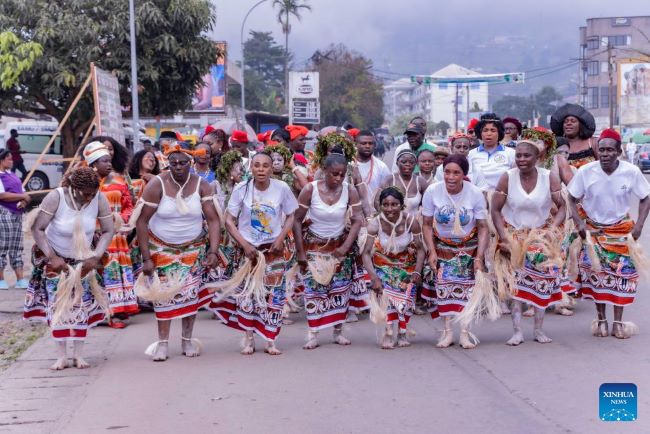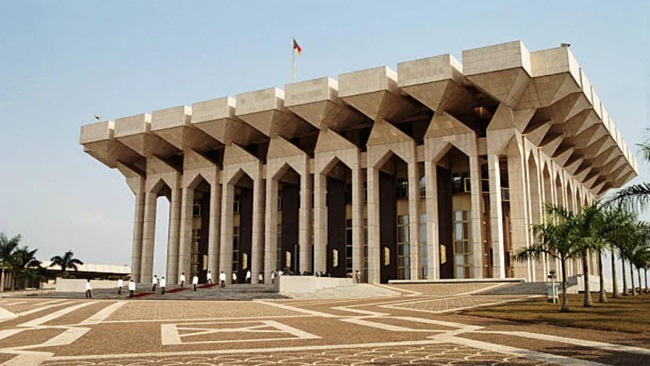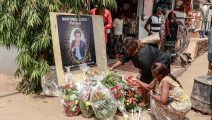2, July 2016
CRTV: Charles Ndongo takes command 4
The newly appointed General Manager of the Cameroon Radio and Television Cooperation, Charles Pythagoras Ndongo and his deputy, Emmanuel Wongibe, have been installed into their functions.
The scantily attended ceremony took on Friday the 1st of July 2016 at Studio 1 at Mballa II. The ceremony was chaired by the chairman of the CRTV board and Minister of Communication, Issa Bakary Tchiroma.
Rita Akana (Cameroon Concord News)



























2, July 2016
Yaounde: New National Reference Laboratory for Malaria research opens 0
The two storey edifice was inaugurated on Friday 1st of July 2016 by the Minister of Public Health Andre Mama Fouda in the company of the French Secretary of State in charge of Development Andre Vallini; the French Ambassador to Cameroon Christine Robichon and the Director of the Cameroon Medical Research Centre Guy Vernet.
The laboratory which is situated at the Cameroon Medical Research Centre in Yaounde has been created in order to step up the fight against Malaria. It is equipped with modern scientific tools such as high resolution microscope. The National Reference Laboratory for Malaria Research Project was constructed with funding from the Ministry of Finance, the Ministry of Economy Planning and Regional Development, and the French Corporation.
CRTV